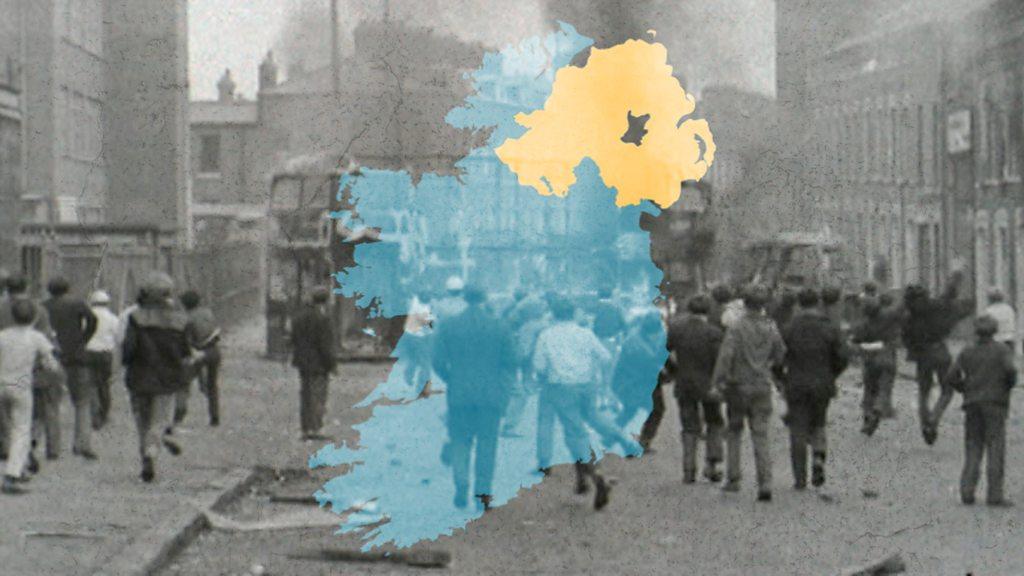The Troubles: Army chief's secret memo called for NI 'escape'
- Published
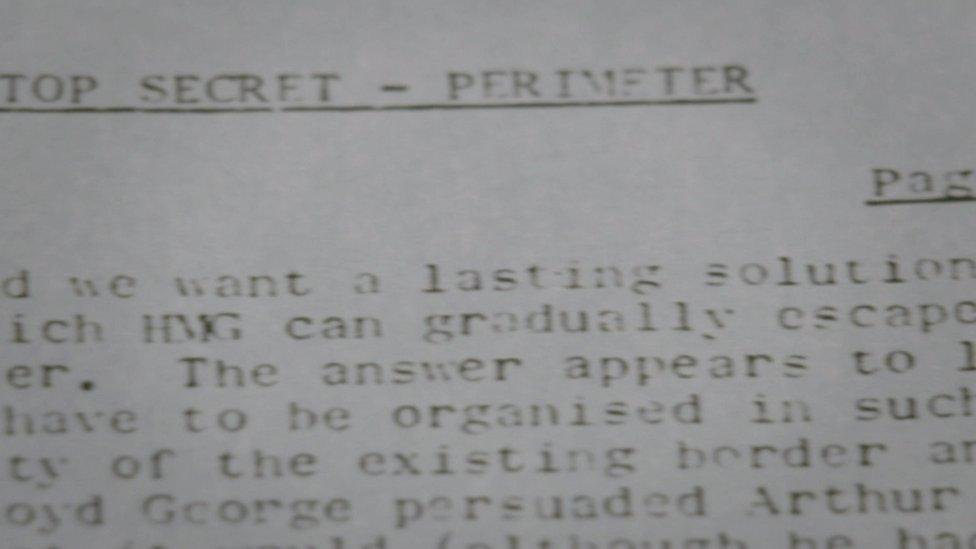
The memo suggested a poll that "shows up the inequity of the existing border"
A top-secret memo written by an Army general during the Troubles refers to Britain needing to find a way to "gradually escape" from its commitment to Northern Ireland.
It was discovered by the BBC NI's Spotlight programme during the making of a major new series on the conflict.
It was written by Sir Michael Carver, who was providing advice to government in 1972 as the Army's chief of staff.
The decades-long violence cost about 3,700 lives.
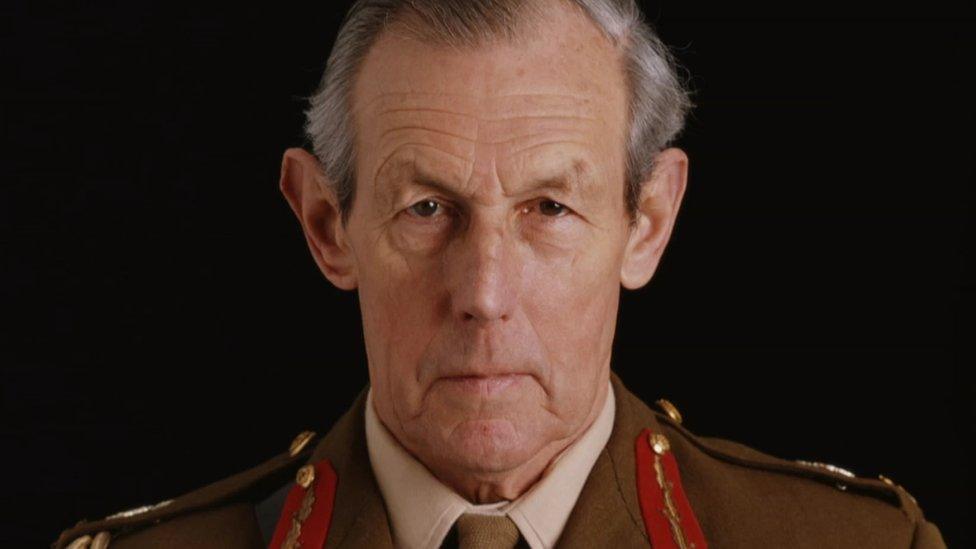
Lord Carver was the Army's chief of staff in 1972
The former chief of staff, later Lord Carver, wrote: "If I am right, and we want a lasting solution, it must lie in finding a way in which HM Government can gradually escape from the commitment to the border."
He suggested a "plebiscite", or poll, organised "in such a way that it shows up the inequity of the existing border".
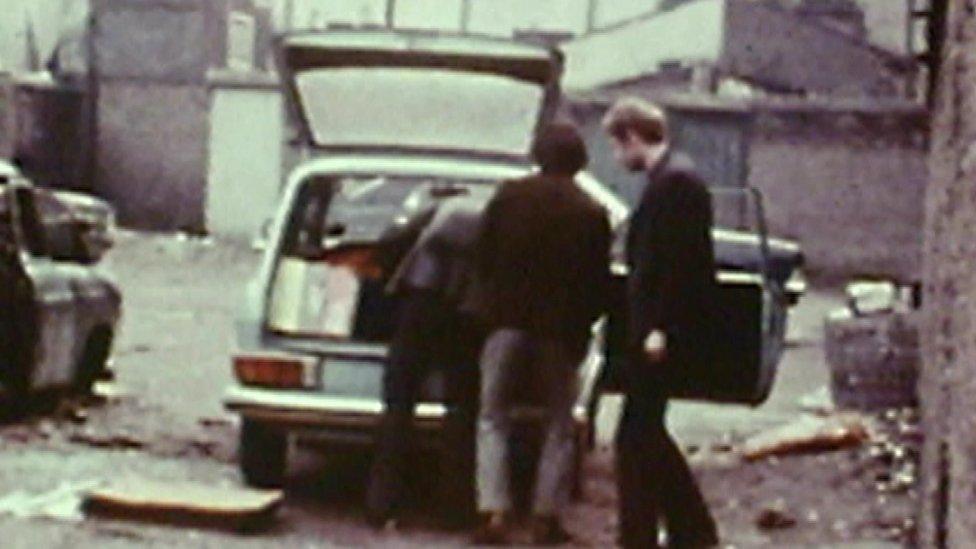
Rare film footage shows Martin McGuinness (right) present as a car bomb is assembled
The programme makers have also obtained rare film footage showing Martin McGuinness, the former IRA commander, in the presence of people assembling a car bomb.
Identifiable by its licence plate, the vehicle was used in an attack on Shipquay Street in the centre of Londonderry in 1972.
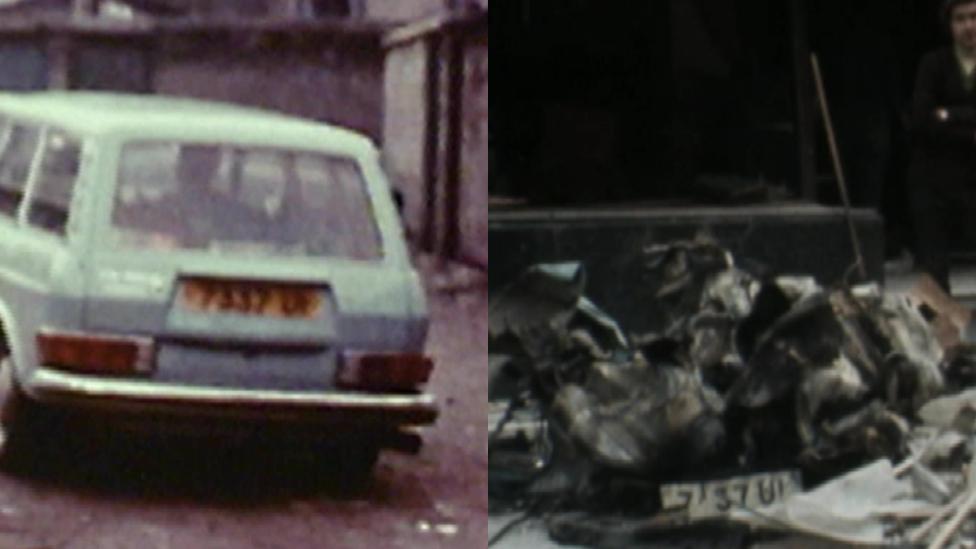
The car was used in a bomb explosion in Derry city centre
In other footage, the former Sinn Féin deputy first minister of Northern Ireland is seen showing children weapons and ammunition.
Part one of Spotlight on the Troubles: A Secret History covers 1966 to 1972 and also explores the rise of Ian Paisley, who went on become DUP leader and first minister.
A former senior army officer, David Hancock, told the programme Mr Paisley "financed" a UVF bombing in Kilkeel in 1969.
Targeting infrastructure, the blast was blamed on the IRA, but was part of a loyalist campaign designed to destabilise the Stormont government of Terence O'Neill.
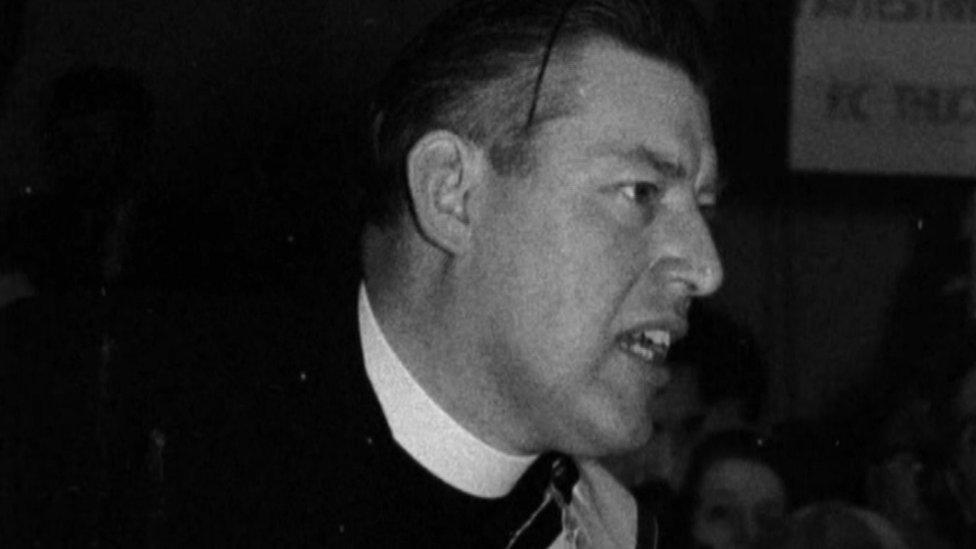
Ian Paisley pictured speaking during a protest rally
Mr Hancock said police had shown him "evidence" that Mr Paisley "had supplied the money which financed the explosion".
Mr Paisley's son Ian, the DUP MP for North Antrim, said the allegations were "complete and total poppycock" and criticised the BBC for not approaching the Paisley family with them.
Ian Paisley told the Nolan programme on BBC Radio Ulster there was "absolutely no truth whatsoever in what I can only describe as a filthy story designed to try and impugn the reputation of a dead man".
A BBC Spokesperson said: "The BBC has complete confidence in the editorial integrity of the programme.
"As no allegations were made against the wider Paisley family it was not necessary to offer them a right to reply."
The series comprises seven programmes and contains interviews with around 100 people as well as archive never shown before.
The editor of Spotlight, Jeremy Adams, said the series had uncovered "new findings" on the Troubles.
"The past has shaped our present and it's vitally important that truths continue to be told."
The first episode of Spotlight on the Troubles: A Secret History will be broadcast on BBC One Northern Ireland and BBC Four on Tuesday, 10 September at 20:30 BST.
- Published12 August 2019
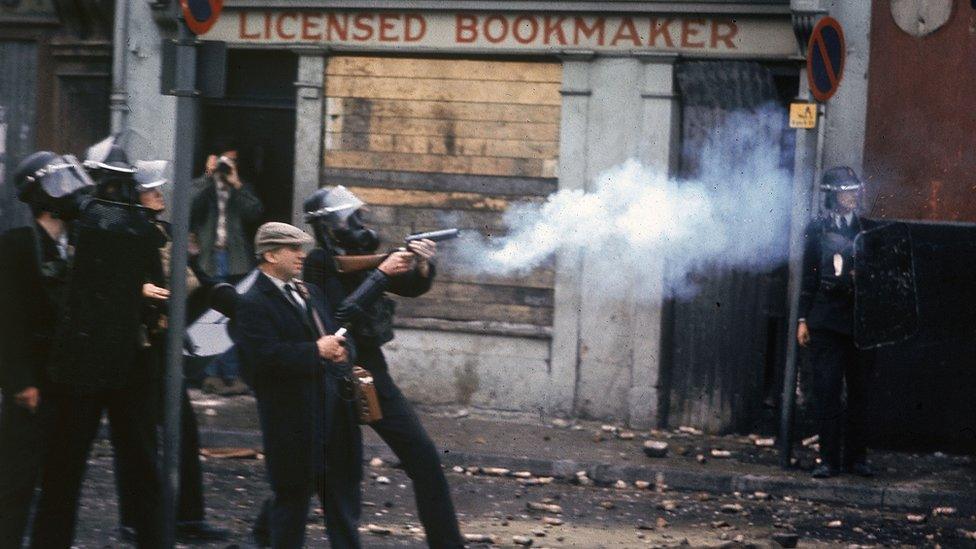
- Published17 August 2019
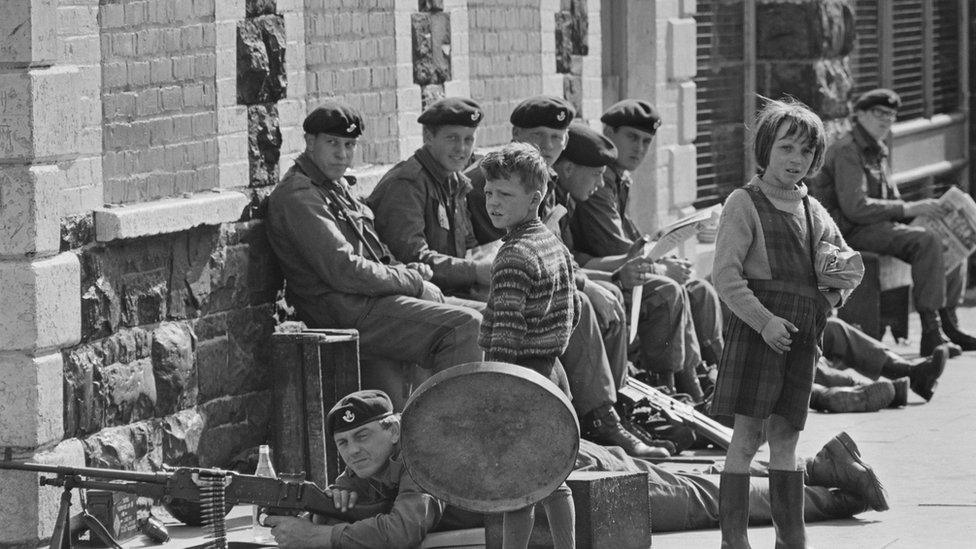
- Published13 August 2019
